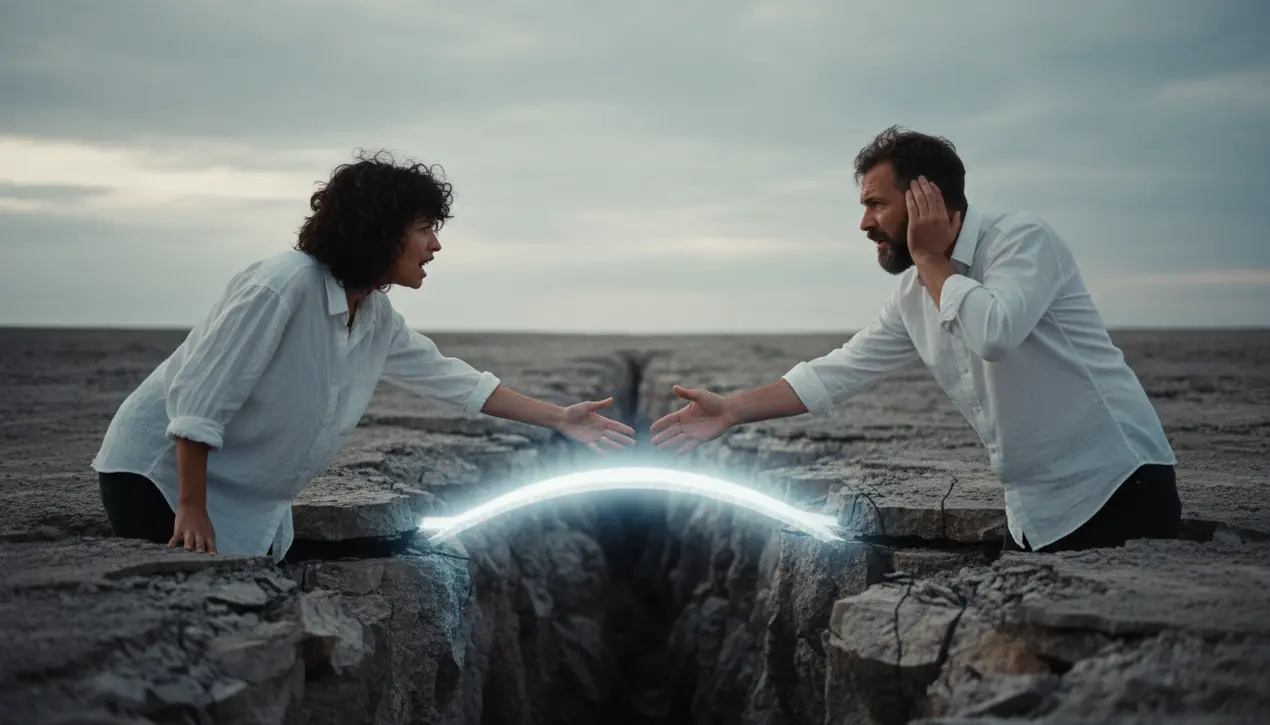
Scienceneuroscience
Bridging the Divide: The Art of Active Listening in a World of Conflict
LA
Laura Bennett
5 hours ago7 min read1 comments
It begins with a spark—a connection so electric it seems to defy the fundamental solitude of being human. Yet, inevitably, the moment arrives when you look at a partner, friend, or colleague and realize you are having profoundly different experiences of the same reality.Suddenly, you're sparring on the precipice of a chasm you both forgot was there. This breakdown in communication is a universal human ordeal.The surface-level argument—over chores, finances, or directions—is merely the tremor; the earthquake is the terrifying realization that your inner world is not their inner world. In 1951, against the backdrop of a Cold War defined by a catastrophic failure to communicate, the influential psychologist Carl R.Rogers presented a radical solution at the Centennial Conference on Communications. His insights, drawn from years of client-centered therapy, offer a potent antidote to the ideological and personal stalemates of our time.Rogers identified a deceptively simple core practice for bridging the abyss: genuine listening. This is not the passive act of waiting for your turn to speak, but what he termed 'active listening'—a courageous effort to see the world from another's internal frame of reference.He posited that true communication is impossible until you can articulate the other person’s position to their complete satisfaction. This doesn't require agreement, only a deep, empathetic understanding that prompts them to affirm, 'Yes, you understand me.' This act is a form of psychological disarmament; it demands you lay down your defenses and enter their emotional landscape unarmed. The most successful communicators master this skill.Consider Sarah, a teacher who described a recurring financial dispute with her husband. The conflict only dissolved when she moved beyond logical counter-arguments and instead reflected, 'It sounds like you're terrified we're one missed paycheck from ruin, just like your family experienced.' In that moment, he felt profoundly heard, and their fight about money transformed into a conversation about deep-seated fears and the need for security. Rogers championed this empathic approach as our most vital tool for reconciling not only personal rifts but also our most entrenched social and political divisions.In our modern era of competing digital monologues, his call for a dialogue built on unconditional positive regard is more urgent than ever. The goal is not necessarily to meet in the middle, but to first construct a bridge of understanding across the chasm. Only then can two separate consciousnesses meet upon it, finally and compassionately acknowledging the space between them.
#communication
#psychology
#Carl Rogers
#relationships
#conflict resolution
#editorial picks news
Stay Informed. Act Smarter.
Get weekly highlights, major headlines, and expert insights — then put your knowledge to work in our live prediction markets.
Related News
Comments
Loading comments...
© 2025 Outpoll Service LTD. All rights reserved.